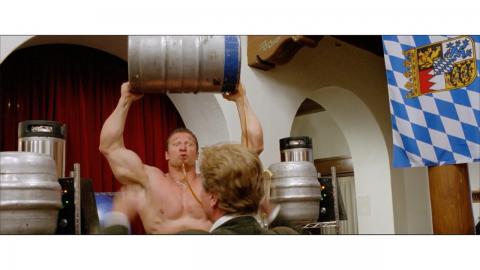Top 5 Beer Facts

Beer is one of the world's oldest and most popular beverages, so of course it stands to reason that it is also one of its most fascinating. Crack open a cold one and join us for this instalment, in which we're looking at the most interesting facts about beer, the world's third most-consumed drink.
Head over to WatchMojo.comsuggest to submit your idea for the next video in our Facts series!
#5: Beer Tastes No Different Coming from a Can
Beer snobs have been arguing against cans since their introduction in 1935, claiming that the aluminum ruins the beer by giving it a metallic taste. However many beers experts respond that if you’re pouring your beer into a glass and not putting your mouth on the can, you shouldn’t be tasting metal at all as there’s a plastic lining on the inside of the can. And, what do you think your favourite draft beer was stored in until the moment it was served to you? A metal keg! Cans might even be superior to bottles in one key way. Beer freshness depends on protection from three things: heat, oxygen, and light. Bottles and cans are both great at protecting from air, but cans definitely have the edge when it comes to blocking out flavour-ruining UV light.
#4: Beer is One of the World's Oldest Beverages
Beer is the nectar of the gods, and ancient cultures certainly knew it. Mesopotamians, Celts, and a host of others actually had goddesses of beer, and prayed to them to deliver consistent brew quality. The music you’re hearing now is basically a Sumerian drinking song, from the 3900 year-old text the Hymn to Ninkasi, the Goddess of Beer. It contains the earliest known recipe for brewing beer. Archaeological evidence for brewing goes back to 7000 BC, but beer may date as far back as 10,000 B.C., when humans started farming cereal grains. One theory has it that it was the reason we started farming, which was basically the birth of civilization! All praise Ninkasi!
#3: Beer Has Many Positive Effects on Health
Drinking till you drunk dial is never going to be good for you, or anyone. But beer can actually be kind of healthy for you, if enjoyed in moderation. Beer has been proven to significantly cut the risk of heart disease, which is the number one cause of death in the United States, by 60%. Dark ales and stouts are especially good in battling atherosclerosis, which is the fancy term for when artery walls become blocked with cholesterol. It also helps protect against degenerative diseases like Alzheimer's and Parkinson's due to the compound xanthohumol, which is found in hops. This compound helps protect neuronal cells in the brain, effectively slowing the development of the diseases. But, this just in– a brand new study in the British Medical Journal concludes that even light and moderate alcohol consumption can slightly raise your risk of cancer. As the adage goes: moderation in all things, and in all things, cancer. Curse you, Ninkasi!
#2: Brewing Waste Can Help with Bone Regeneration
Even the byproducts that beer produces have positive effects! Much of the waste that is left over from the brewing process contains the main chemical compounds found in human bones: calcium, phosphorus, magnesium, and silica. After undergoing a modification process, the waste could then support various practices of bone regeneration, such as coating prosthesis or bone grafts. This in turn reduces the accumulation of waste in the environment, so really, it's a win win.Researchers have also found that beer is a good dietary source of silicon, a mineral that is key to growing strong, healhty bones. Forget milk! I’m pouring PBR on my cereal. Snap, crackle, burp!
#1: Alcoholics in Amsterdam Get Paid in Beer
Oh Amsterdam, is there anything you won't do? In an experimental project funded by the Dutch government, alcoholics are being paid in beer to clean the city streets of debris and litter. Their payment includes two beers before work, two at lunch, and one to take home at the end of the day, plus a small sum of money. And, like most controversial policies in Amsterdam, it has been a resounding success. Think about it: if they’re alcoholic, they are definitely going to drink, so why not enable volunteers to get a bit of exercise, and be helpful to their communities while they’re at it?
What do you think? Should we have more public programs that pay in liquor? For more refreshing Top 10s and beneath the legal limit Top 5s, be sure to subscribe to Watchmojo.com.
